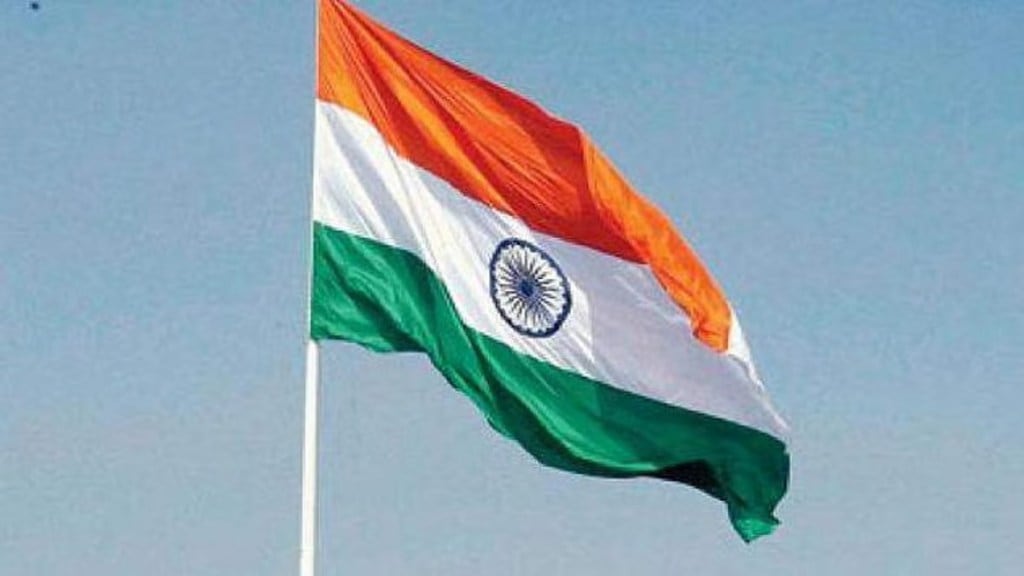It was in a Swiss village of undulating meadows and autumnal rain that I heard the Prime Minister’s appeal for ‘swadeshi’ last week. It was here in a hospital room that I watched with growing disbelief Donald Trump’s speech at the UN General Assembly. As I listened to him accusing the UN of inertia and ineptitude, telling Europe that its countries were “going to hell” because of illegal immigration, and accusing India and China of funding Russia’s war on Ukraine, my sense of disbelief grew and grew. How is India going to deal with our economic and political issues with the United States when it is led by a man who makes so little sense?
I brooded over this as I took my morning walk on a path that runs around this hospital. I am here not for personal health problems, but those of someone else. I clarify this because last time I mentioned being in and out of hospitals, I got many letters of solace from kind readers of this column. The path I take for my morning walks here looks onto peridot-coloured meadows in which soft mists rise, and fat Swiss cows brood. The immaculate beauty of this little village reminds me painfully of our own filthy, unsightly villages. It lent a poignant quality to the constant appeals for ‘swadeshi’ and ‘vocal for local’ that our Prime Minister now makes almost every day.
He perhaps knows better than anyone how hard it is going to be for India to achieve the impossible goal he has set for us to become fully developed by 2047. What he needs to understand is that the main reason why is that he is not working with a clearly defined economic policy in mind. The RSS has produced obscurantist economic thinkers who invent meaningless slogans like ‘Gandhian Socialism’ and ‘we are neither capitalist, nor socialist’, and they seem to have influenced Narendra Modi deeply. Or we would never have ordered that insane demonetisation that served mostly to crush small entrepreneurs and destroy the meagre savings of some of our poorest citizens.
Slogans vs. Strategy
What India needs urgently, if it aspires to become a developed country, is a clear economic policy and a strategy to achieve its goals. The finance minister spends much time urging private investors to start investing, but seems not to spend any time asking why they do not. Not being an economist, I seek the advice of others when I write about economic matters, so I asked a Mumbai businessman not long ago why private investment was not happening. He said, “Private investment happens when the mood is optimistic, and the numbers add up.”
It should be clear to even those with no understanding of economics that the mood is not optimistic and the numbers are not adding up. If they were, we would not be in a phase when only a handful of very rich businessmen are doing very well and almost everyone else is languishing in the shadows, hanging on to their money and hoping there will be better times to come. In the highest echelons of government, it may seem that India has been transformed into a country in which it has become easy to do business, but it has not. There remain blockages, tangles of red tape and bossy babus at every step. GST 2.0 may change things, but some months ago when I tried to register for GST, I could not do it without the help of accountants.
The ‘Local’ quality gap
As for becoming ‘vocal for local’, it should be evident even in that private housing estate called Lutyens’ Delhi that most Indians already buy locally made products. There are some Indian products that are so good now that I have foreign friends who load up with Indian shampoos, conditioners and Ayurvedic skin products every time they wander by. But when it comes to more sophisticated manufacturing, we are obliged to buy laptops made in other countries and, as the Prime Minister knows well, he would feel unprotected if he did not have a fleet of German cars to travel in. Indians in the service industry are more competitive, especially those who go to Silicon Valley on H-1B visas. But why have we not yet produced an Indian ChatGPT yet?
To return to the Swiss village where I am, I would like to end by explaining why Indians with means choose to go to Western countries for healthcare despite India exporting doctors and nurses to the Western world. As someone who spent months in and out of the finest Mumbai hospitals before coming here, I am forced to admit truthfully, that in this department, ‘vocal for local’ simply does not work. At the very top of healthcare services in India, there are so few specialists that if they can spare you five minutes of their precious time, you are lucky. In this Swiss hospital, when a doctor gives you time, they give you as much as you want. In terms of hygiene and technology, ‘local’ simply cannot compete.
The Prime Minister is right when he imposes upon India Swadeshi 2.0. But unless the quality of swadeshi improves dramatically and unless politicians and bureaucrats get out of the way of businessmen trying to do business, our story will remain hopeless. So, with my usual humility, may I urge the Prime Minister to gather around the best economists and ask them to define a new policy.
ends
